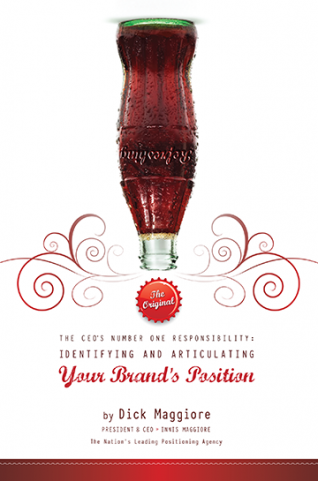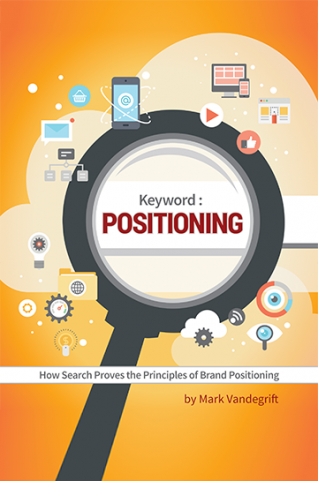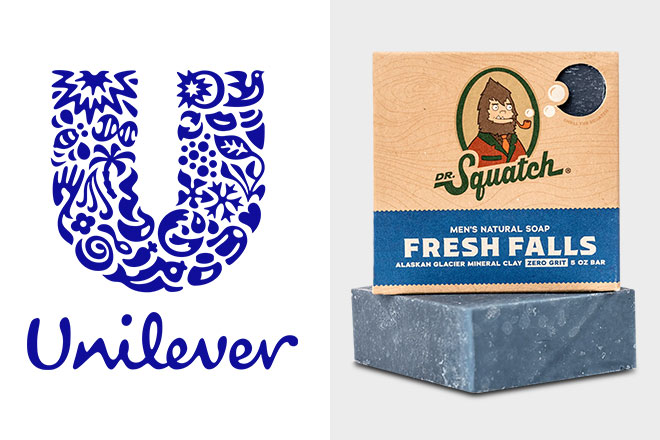One of the biggest retail acquisitions of the year just took place this summer, and effective marketing is right at the center of both the past and future success of the brand. Dr. Squatch (Squatch) was acquired by Unilever in a $1.5 billion deal, and with Squatch growing from a humble $5 million in revenue in 2018 to $400 million in revenue this past year, it’s unsurprising that this new cash cow would be in the sightline of a large player. At first glance, Squatch is a social media-centric brand, with an accelerating grassroots presence fueled by online hits and memes. But to a trained eye it's clear that Squatch has consistently delivered on a timely and genius positioning strategy. If Unilever hopes for this brand to continue delivering on its promising numbers, they should pay careful attention to maintaining brand identity.
When an acquisition takes place, it's no surprise that a mismanaged sale can result in not only an identity crisis for the company being acquired but can also lead to the collapse of the brand altogether. Take a brand like Nokia as an example; once the powerhouse of all cell phone devices, Nokia missed the smartphone revolution in the early 2000s. After selling its device division to Microsoft in 2013, the brand that was once known for dominating the industry with its position as the most durable phone manufacturer, now represented nothing in particular, and was eventually written off by Microsoft in 2015. Even up-and-coming, youthful brands are poised to be victims of this risk. If you remember ModCloth, the young vintage-inspired clothing company that grew with the advent of the internet age, you might also remember their acquisition by Walmart subsidiary Jet.com in 2017. ModCloth didn’t thrive in this deal, largely due to the brand mismatch of an everyday-low-price online retailer and a trendy artisanal clothing brand. ModCloth has been traded hands several more times since 2019 and is a shadow of its former self. When a company is acquired by a larger, successful conglomerate, it does not guarantee success, which depends on effectively maintaining brand identity. It is a decision that could be just as risky as deciding to continue operations independently. When it comes to protecting your brand, these decisions should be carefully scrutinized.
Maintaining Brand Identity with Positioning
While there are many large financial and organizational factors at play when deciding whether an acquisition is appropriate, positioning experts care about maintaining a clear brand difference first and foremost. Three of the four Cs of positioning (Competition, Customer, Company, and Context) remain largely the same after an acquisition. An acquisition usually doesn’t result in a change to the target market or the distance from other competitors' brands. Yet the third C, company, can drastically change overnight. If a company changes to no longer fit a position, the brand can be left in a confused, meaningless state, just like Nokia or ModCloth. And when a brand has no meaning, it will wither quickly into a meaningless commodity. Take this principle into account when analyzing the Squatch acquisition; an up-and-coming soap company is now a subsidiary of a retail conglomerate that also owns Dove and Axe. Practically, it would seem like a great move for Squatch as the logistical support, industry knowledge and partnerships that Unilever brings can only spur their brand into more growth. But as positionists, we like to think pragmatically about the full picture of both Squatch and Unilever’s identities, and what careful steps should be taken to avoid the downfall of the acquired brand.
Squatch has built a position as the ingredient-focused soap, drawing the difference between itself as a natural alternative to their competitors who sell chemical-based “laundry detergent” soap. Squatch’s founder, Jack Haldrup, set out to make Squatch the leading brand for natural, ingredient-focused, and healthier soap and was able to build a successful company that best fit the brand position with an organization that was centered on this core mission. Yet Unilever would appear to represent the opposite of this position, as their brands are the very competitors Haldrup would use to draw a difference between his products and the current soap market.
Let’s take a look at some marketing statements of the Squatch brand that feed their position:
“While some brands choose to cut corners with inferior ingredients to make production cheaper and faster, we take a different approach.”
“The Squatch mission remains the same — to raise the bar (pun intended) for natural products and change the way men approach their personal care.”
“Meet our Sh*t List, a roster of ingredients that we vow to never use in any of our products.”
In direct comparison to Unilever’s own soap brands, the mismatch issue between the company and the position becomes more apparent. Axe and Dove have great fragrances and can be found just about anywhere, but with that comes the use of ingredients and processes for massive production and distribution, not necessarily the best ingredients from a “natural-ingredient” perspective. For Squatch to keep this acquisition successful, Unilever must be careful to maintain brand identity rather than quickly integrating the brand into their company the same way they might for their other soaps.
When the Position Works
Unilever should not treat the acquisition of Squatch as an easy win. It has taken years of consistency and delivering on their brand promise to build the position and following that the brand now enjoys. Squatch’s revenue success is the greatest testament to the success of their position, with their largest surge of growth coming shortly after their 2021 Super Bowl ad, “You’re Not a Dish,” which suggests competitors will sell dish soap in comparison to the natural ingredients of Squatch, with a 200% lift in market share following the Super Bowl. The Squatch following is loyal, but they’re loyal for the natural-ingredient position.
With a cult-following viral brand like Squatch, the response by customers is a great sign that every action by Unilever will be scrutinized. On the social media platform Reddit, customers responded to the acquisition with quotes such as “My guess would be that the price will stay the same and the quality and customer service will be downgraded ... Adios, Squatch, it was fun while it lasted,” and “Guarantee it will be both, higher prices (and a) drop in quality. Nothing natural and untouched ever stays that way, sadly.” Under the scrutiny of customers and considering the reason Squatch has thrived in the market over the last few years, we question whether Unilever will optimize this brand the same way they would their other soap brands.
Our Conclusion:
Did Unilever make a mistake with this acquisition? Not necessarily, Squatch can still thrive and continue to make massive waves in the soap industry. But this will require an intentional effort on Unilever’s part to ensure that Squatch stays the natural-ingredient soap. If they were to integrate Squatch into the same processes and efficiency standards normal for Unilever brands, Squatch would be likely to run into the same issue as ModCloth and Nokia — and stand in a sea of sameness/commoditization.
Maintaining brand identity after an acquisition is tough sledding. Many times, brand rationalization and a revisit of the brand portfolio are required. If you face brand confusion among your portfolio, contact Innis Maggiore for assistance. As the nation’s leading positioning ad agency, we will ensure each brand is rationalized with a strong position and reason to exist.



